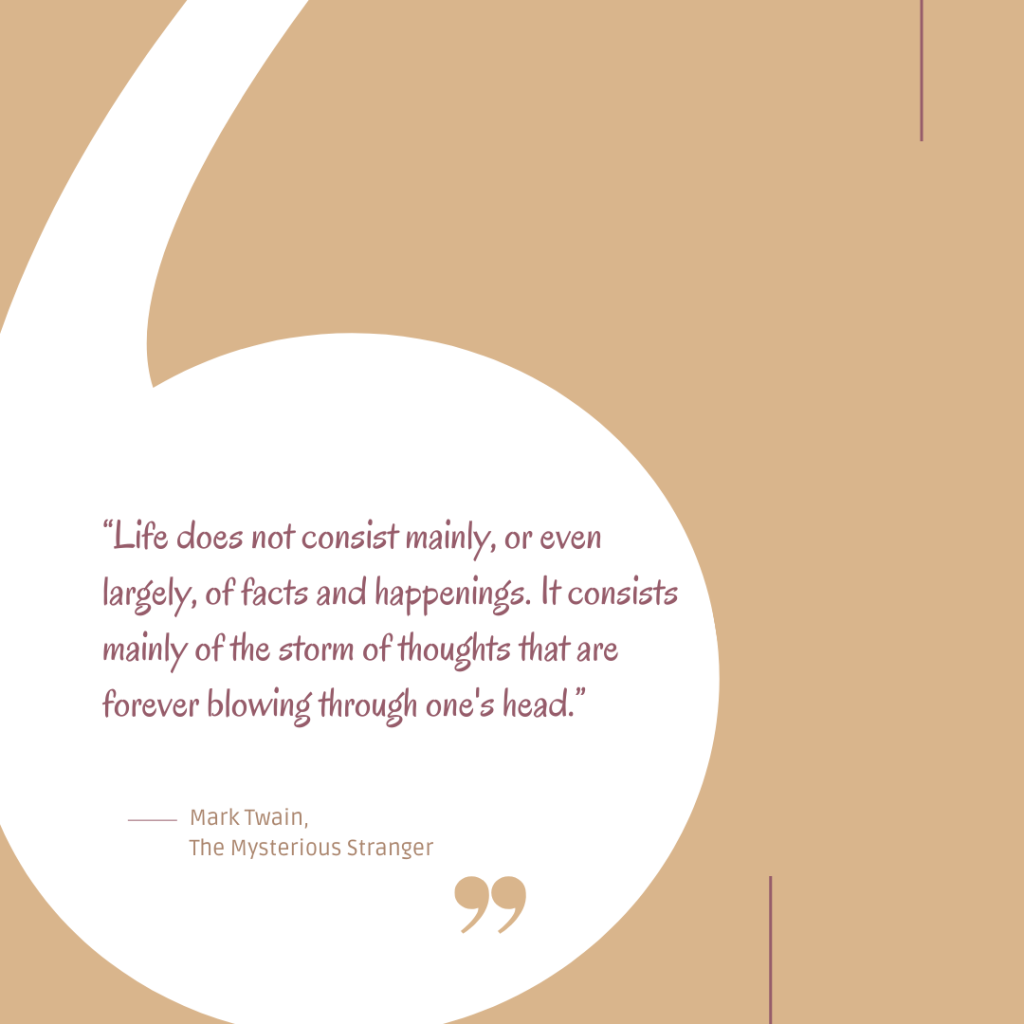Step into the world of Mark Twain, one of America’s most celebrated literary figures, as we explore his insightful quotes on life. In this article, we delve into the wisdom hidden within Twain’s iconic works and uncover the lessons he imparts to us through his captivating storytelling.
Twain, known for his satirical wit and sharp observations of the human condition, has left behind a treasure trove of quotes that continue to resonate with readers today. From his timeless classic “The Adventures of Huckleberry Finn” to his biting social commentary in “The Adventures of Tom Sawyer,” Twain’s words have the power to inspire, challenge, and provoke thought.
Through his quotes, Twain offers valuable perspectives on topics such as love, friendship, success, and the pursuit of happiness. As we explore his words, we will discover the enduring relevance of his wisdom and how it can enrich our own lives.
Join us on this journey of discovery as we unpack Mark Twain’s quotes on life and learn from the profound insights of this literary giant.
Exploring Mark Twain’s Iconic Works
The Adventures of Tom Sawyer
In “The Adventures of Tom Sawyer,” Twain takes us on a journey through the mischievous and adventurous life of young Tom Sawyer. Through Tom’s escapades, Twain explores themes of imagination, friendship, and the importance of staying true to oneself.

One of the most memorable quotes from this book is,
“Don’t go around saying the world owes you a living. The world owes you nothing. It was here first.”
This quote reflects Twain’s belief in personal responsibility and the importance of hard work. It serves as a reminder that we cannot expect success or happiness to be handed to us; we must earn it through our own efforts.
Another notable quote from this book is
“In the real world, adults don’t get rewarded for doing things they should have done in the first place.”

Twain uses this quote to highlight the contrast between the idealized world of childhood and the harsh realities of adulthood. It reminds us that in the real world, actions have consequences, and we must take responsibility for our choices and their outcomes.
Adventures of Huckleberry Finn
In “Adventures of Huckleberry Finn,” Twain tackles the sensitive and controversial issue of racism in America. Through the eyes of Huck Finn, a young boy on a journey down the Mississippi River, Twain challenges social norms and exposes the hypocrisy and cruelty of racial prejudices.

One of the most powerful quotes from this book is,
“Human beings can be awful cruel to one another.”
This quote serves as a stark reminder of the dark side of human nature and the capacity for cruelty that exists within us. Twain uses this quote to shed light on the injustices and inequalities that plagued society during that time and to urge readers to strive for a more compassionate and inclusive world.
Another quote that resonates deeply is,
“All right, then, I’ll go to hell.”

This quote captures Huck’s moral dilemma as he grapples with the decision to help his friend Jim, a runaway slave. Twain uses this quote to highlight the conflict between societal expectations and individual conscience. It forces us to question the morality of blindly following societal norms and encourages us to listen to our own moral compass, even if it means going against the grain.
The Prince and the Pauper
“The Prince and the Pauper” explores themes of identity, social class, and the pursuit of happiness through the story of two boys who exchange lives. Twain uses this tale to challenge our preconceived notions about social hierarchy and to emphasize the importance of empathy and understanding.

One of the most thought-provoking quotes from this book is,
“Clothes make the man. Naked people have little or no influence on society.”
Twain uses this quote to highlight the superficiality of society’s judgments based on appearance and social status. It serves as a reminder that true worth lies not in external trappings, but in one’s character and actions.
Another quote that resonates deeply is,

“The secret to happiness is freedom… And the secret to freedom is courage.”
Twain emphasizes the connection between freedom, happiness, and courage in this quote. It encourages us to break free from societal expectations and pursue our own path, even in the face of adversity.
A Connecticut Yankee in King Arthur’s Court
“A Connecticut Yankee in King Arthur’s Court” combines elements of time travel, fantasy, and social critique. Twain uses the protagonist’s journey back in time to King Arthur’s court to satirize the flaws and follies of the past and present society.

One of the most memorable quotes from this book is,
“It’s not the size of the dog in the fight, it’s the size of the fight in the dog.”
Twain uses this quote to challenge the notion that physical strength or power determines the outcome of a conflict. It serves as a reminder that determination, resilience, and wit can often triumph over brute force.
Another notable quote is,
“It is easier to stay out than get out.”

Twain uses this quote to highlight the difficulties of breaking free from societal norms and expectations. It serves as a reminder that it is often easier to avoid getting entangled in oppressive systems than to extricate oneself once trapped.
The Mysterious Stranger
“The Mysterious Stranger” explores profound philosophical questions about life, death, morality, and the nature of reality. Twain weaves a captivating tale that challenges our assumptions and forces us to question the nature of existence.

One of the most thought-provoking quotes from this book is,
“There is no such thing as a moral or an immoral book. Books are well-written, or badly written. That is all.”
Twain challenges the notion of moral absolutes and suggests that the value of a book lies solely in its literary merit. It encourages us to approach literature with an open mind and to appreciate the artistry and craftsmanship of a well-written work.
Another quote that resonates deeply is,
“Life does not consist mainly, or even largely, of facts and happenings. It consists mainly of the storm of thoughts that are forever blowing through one’s head.”

Twain uses this quote to highlight the subjective nature of reality and the power of our thoughts and perceptions. It serves as a reminder that our inner world shapes our experience of the outer world and that our thoughts have the power to create our reality.
Conclusion
Beyond his iconic works, Twain’s wit and humor were also evident in his everyday life. Twain’s wit and humor remind us of the power of laughter and the importance of finding joy in the everyday. His words serve as a reminder to not take life too seriously and to embrace the lighter side of existence.
